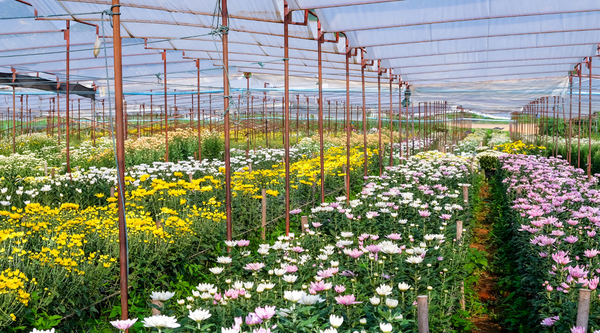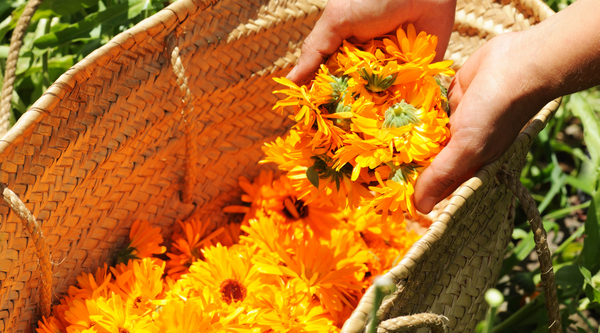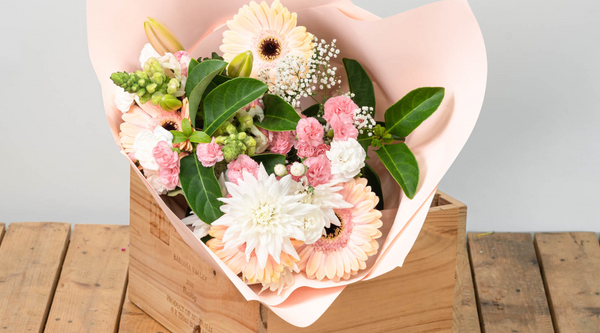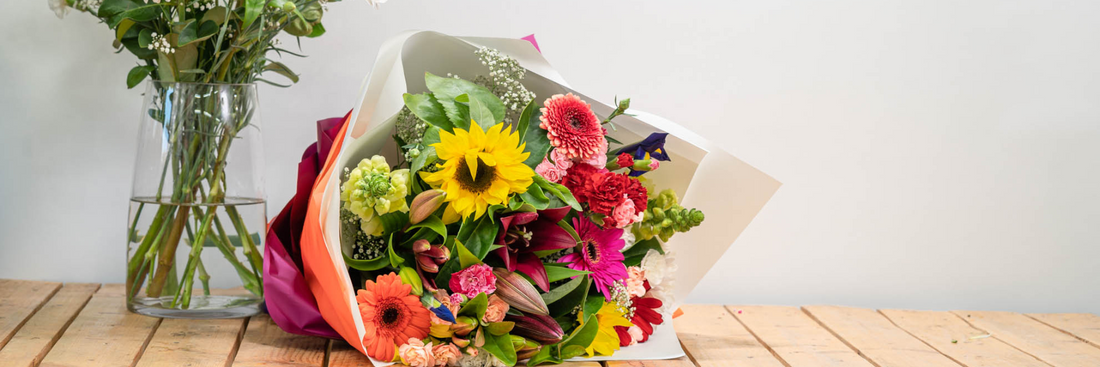If you know The Flower Farm, you know we are all about grown, not flown.
We take pride in sewing our seeds by hand and also picking the flowers by hand once they have reached maturity. We care for the soil. We limit our impact on the earth. We value our community’s health.

And we have found that many of you carry similar values. You want to put your hard-earned money towards ethical products. You’re choosing businesses that are doing their best for the environment. Family-run operations that take pride in what they do, every single day.
But sadly, trying to do this can often be confusing for customers. Especially when it comes to buying flowers. It’s hard to know which products to buy and which businesses to support. And at that the end of the day how can you even tell local flowers from imported ones?
Country of origin labelling is the obvious solution and we believe it could bring about positive change. It could lead to a better outcome for consumers, local businesses and the planet.
Let’s dive deeper.
What’s the problem?
Currently, many of the flowers available for purchase in Australia are imported. They are grown and cut overseas, refrigerated or frozen, then flown here by plane. Next, they are thawed out and placed on shelves for you to buy.
When consumers take these flowers home, they have already passed their peak freshness. Their scent and colour will not be as rich and vibrant as they once were. They might last a few more days, and then will wilt and die.
Buying imported flowers also brings a whole host of other problems.
- Biosecurity concerns – increased risk of introducing pests and/or disease into Australia.
- High use of chemicals – one way to combat biosecurity concerns is with treatment before and after the flowers enter Australia. This means extra processes and chemicals on your flowers.
- Increased carbon footprint – imported flowers are flown on planes from overseas, creating large emissions. The majority of Australia’s imported flowers come from Kenya, Ecuador and Colombia.
- Poor working conditions – concerns have been raised about the health and safety of workers in the cut flower industry in some developing countries.
The problem right now is that not many buyers know which flowers are imported and which are Australian grown. This is particularly difficult as many wholesalers and importers rebrand flowers after they land in Australia.
Understanding country of origin labelling

Ignorance is never bliss when it comes to purchasing power. And to help Australians understand what their purchasing power is supporting, many Australian flower farmers are calling for the introduction of country of origin labelling. This would help consumers to make better, informed choices.
As has been seen with retail food products, country of origin labelling is a really helpful tool. The Country of Origin Food Labelling Information Standard 2016 demands that most foods sold in Australia must have country of origin labelling. As buyers, we know what our options are and can choose was best suits our values.
We believe that similar standards for cut flowers would bring many benefits.
How would country of origin labelling help for the floral industry?

In general, labelling would enable buyers to select Australian-grown flowers as they wish. This could lead to fantastic benefits including:
- More transparency. Country of origin labelling would provide transparency letting consumers understand where their flowers are being grown.
- Boosting the local economy. Buyers could focus their dollars on those local sellers. That would boost their own local economy instead of sending money overseas.
- Better environmental protections. Buying local could limit biosecurity concerns that could impact our local environment.
- Supporting good working conditions. Local flowers are grown with local workers and that means greater confidence in regulated growing and working conditions.
- Increased sustainability. As more consumers become aware of the need for sustainability and the ‘grown not flown’ approach, they are looking towards the local flower industry. Micro flower farms are gaining consumer trust with their typically eco-friendly, low-chemical, bee-friendly growing practices and alignment with the seasons.
Consumers want to feel empowered to make educated buying choices. Local growers want to feel supported. Country of original labelling could help both.
What you can do to support country of origin labelling
- Buy local. The best thing do to is buy local. Choose a small local flower farm that supports sustainability. Buying direct from the farm will ensure that you are not buying imported flowers. And when in doubt, ask!
- Reach out to your MP. It’s also a great idea to reach out to your local MP and express your concerns and desires. This is a great place to start.
- Look for the green & gold! The Flower Industry of Australia has long been campaigning the government to add cut flowers to country of origin labelling regulations. The industry body has now made its own biodegradable green-and-gold labels to signify Aussie-grown blooms. If you can’t make it to a farm directly, look for these labels when you are next shopping for flowers.
Remember, where you invest your money matters!
Get in touch!
The Flower Farm has been serving the Redlands community for over 40 years and takes pride in our ‘farm to vase’ approach. We grow most of our own flowers right here on our fields. And when we cannot grow what we need, we only ever source from other reputable growers.
Get in touch with our team if you have any questions about buying local!


